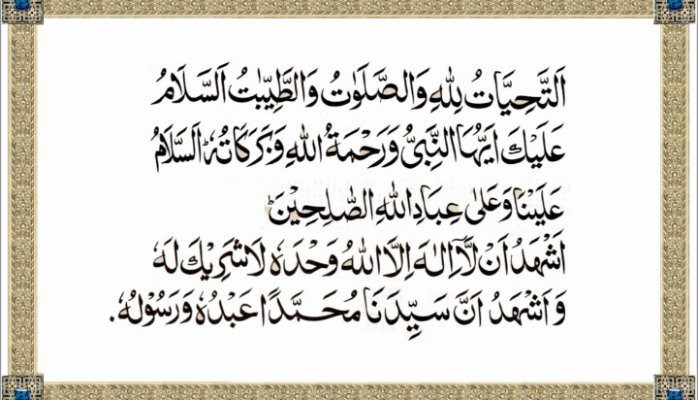“Inna Lillahi wa Inna Ilayhi Raji’un” is an Arabic phrase that translates to “Indeed, we belong to Allah and indeed to Him we will return.” It is a phrase that Muslims say when they get news of someone’s death, as a reminder that all life belongs to Allah and all creatures return after death. Qiratul Quran will cover your all queries regarding this.

What is the Meaning of Innalillahi wainna ilaihi rajiun?
The phrase “Inna Lillahi wa Inna Ilayhi Raji’un” has a profound spiritual meaning for Muslims. Let’s break it down word by word:
“Inna” means indeed or verily “Lillah” refers to Allah/God “Wa inna” means indeed/and verily “Ilayhi” means to Him “Raji’un” means (we) return
So the entire phrase translates to “Indeed we belong to Allah, and indeed to Him we return.” It is affirming the belief that our existence belongs solely to the Creator, Allah. After death, we will return to Him for judgment of our earthly deeds before hopefully entering Paradise by His mercy.
This phrase reinforces core Islamic beliefs about life, death, and the hereafter, reminding the living that this world is fleeting while the next life is eternal. It brings solace for Muslims mourning a death that the deceased has returned to Allah.
A phrase rooted in the Quran
The phrase originates from a verse in the Quran (2:156) which reads: “Who, when afflicted with calamity, say: “Verily we belong to Allah, and verily to Him do we return.” This verse refers to the appropriate Muslim attitude when faced with loss or misfortune – one should recognize that whatever difficulties occur are ultimately by the will of Allah, and one can only return to Allah in the end.
So Inna Lillahi wa inna ilayhi raji’un is recited both as an expression of grief when learning of a death, as well as a reminder that Allah determines when someone’s soul returns to Him. It is a succinct phrase that captures core Islamic beliefs about life and death.
Recited when hearing news of a death
In Islamic tradition, Inna Lillahi wa inna ilayhi raji’un is customarily recited when one receives news of a person’s death. The phrase offers consolation by emphasizing that the deceased originated from Allah and will return to Allah after passing.
So it is not simply an expression of sadness at the loss, but also an affirmation of faith in facing that loss. Reciting Inna Lillahi wa inna ilayhi raji’un is considered a supplication for the deceased as well as a reminder for the living that our lives on Earth are fleeting.
An acknowledgment of Allah’s power over life and death
At its core, Inna Lillahi wa inna ilayhi raji’un is a potent reminder of human mortality, and Allah’s total power over our souls. As the Quran verse originally containing the phrase states, it is an articulation of the proper attitude in the face of great loss and tragedy.
Rather than rail against the injustice of an early death or catastrophic event, the phrase encourages stoic acceptance – after all, we all came from Allah and to Allah we will inevitably return when our predetermined time is up. Our lives and deaths are under the control of an omnipotent higher power.
Provides solace amidst grief
For Muslims going through mourning, Inna lillahi wa inna ilayhi raji’un provides multifold comfort:
- It connects the living with core tenets of Islamic theology around life, death, and the power of Allah.
- It transforms an otherwise difficult-to-endure event into one of religious reflection and spiritual contemplation.
- It provides reassurance that the deceased originated from Allah and has returned to Allah now, encouraging patience and forbearance amongst grieving relatives and friends.
So uttering Inna lillahi wa inna ilayhi raji’un during times of loss elicits endurance, faith, and tranquility while grappling with grief. Rather than giving in to despair at the apparent finality of death, the phrase gently reminds us that we come from Allah and to Him we inevitably return.
How do you write Inna Lillahi wa in Allah e Rajioon in Arabic?
The phrase is written in Arabic script as:
إِنَّا لِلّهِ وَإِنَّـا إِلَيْهِ رَاجِعُونَ
It is transliterated into English as:
Inna Lillahi wa inna ilayhi raji’un
The spelling can vary slightly but the most common transliteration is as written above.
What is the dua for death in Arabic?
There are a few prayers and supplications recommended when death occurs:
- Inna Lillahi wa Inna Ilayhi Raji’un – Discussed above
- Allahumma-ghfir lihayyina wa mayyitina wa sagheerina wa kebeerina wa thakarina wa unsaana.
O Allah, forgive our living and our dead, our young and our old, our males and our females.
- Allahumma ajurnee fe museebatee wakhluf lee khayran minha.
O Allah, reward me for my hardship and give me something better in return.
These Du’as remind the living to seek Allah’s forgiveness for the deceased while being patient with their grief.
When is Inna Lillahi wa inna ilayhi raji’un said?
Beyond just mourning the loss of life, Inna Lillahi wa inna ilayhi raji’un is recited in a variety of situations and scenarios by Muslims as an articulation of core theological beliefs.
Death and funerals
The phrase is most prominently uttered upon receiving news of someone’s death, or when parting with the deceased before burial rituals. This reaffirms Islamic beliefs about the transitory nature of human life for attendees and expresses hope for the onward journey of the soul of the deceased.
At funerals, Inna Lillahi wa inna ilayhi raji’un offers solace to grieving relatives coming to terms with their loss. It reminds them their loved one originated from Allah and has returned to Allah now.
Life-threatening danger
Muslims may recite Inna Lillahi wa inna ilayhi raji’un when confronted with perilous situations that could imminently lead to death, such as natural disasters, battlefield combat, terminal illness, or critical surgery.
By uttering it before potential sudden death, Muslims reaffirm their willingness to return to their divine Creator when the soul’s earthly tenure is threatened unexpectedly.
Upon religious initiation
New Muslim converts may recite the phrase right after uttering the Shahadah declaration that affirms belief in the oneness of Allah and acceptance of Muhammad as Allah’s final prophet. This seals one’s initiation into the Islamic faith by acknowledging everything belonging to Allah, including one’s soul.
Moments of emotional intensity
Beyond physical or existential threats to life, Inna Lillahi wa inna ilayhi raji’un may also be recited in moments of acute emotional intensity that overwhelm the soul, such as experiencing stunning natural beauty, feeling profound grief, or having a transcendent mystical experience.
By reciting it in intense emotional moments, Muslims connect back to their core insignificance before the boundless glory and power of Allah over all things, living and dead.
Personal milestone events
Muslims sometimes utter Inna Lillahi wa inna ilayhi raji’un during major life milestones like a wedding or the birth of a child as a personal reminder that Allah is the giver and taker of all good things.
Even the happiest occasions occur by the will and grace of Allah alone. All souls originated from Allah, and to Allah, they shall eventually return when each person’s destined time on Earth expires.
What is the meaning of Innalillahi Wainnailaihi Rojiun in Urdu?
The phrase Inna Lillahi wa Inna Ilayhi Raji’un translates to Urdu as:
“بےشک ہم الله کے ہیں اور بےشک ہم اسی کی طرف لوٹ کر جانے والے ہیں“
Which means:
“Indeed we belong to Allah, and indeed towards Him, we will return.”
So the core meaning remains the same as the original Arabic phrase – affirming that human existence belongs to Allah and we will return to Him after death. This phrase brings solace when remembering deceased ones have returned to the Creator.
What are the benefits of Inna Lillahi wa Inna Ilayhi Raji?
Some spiritual and emotional benefits of saying Inna Lillahi wa Inna Ilayhi Raji’un include:
- Remembering death and the hereafter makes one value this life and utilize it better.
- Reinforces core Islamic beliefs, bringing peace through the certainty of returning to Allah.
- Realizing that the loss of loved ones is part of Allah’s divine plan can bring acceptance.
- Processing grief and finding solace knowing the deceased has returned to Allah.
- Unity is when all Muslims say this phrase together in times of death.
- Reminds one to seek forgiveness from Allah for themselves and the deceased.
So this profound phrase contains layers of wisdom – affirming core beliefs, grieving with dignity, motivating righteousness, and comforting loss.
How should Inna Lillahi wa inna ilayhi raji’un be recited?
When reciting Inna Lillahi wa inna ilayhi raji’un, Muslims aiming for spiritual tranquility amidst grief should adhere to etiquette ensuring proper delivery and reception of its consolation.
Speak softly with humility
The phrase should be uttered softly rather than loudly proclaimed. Gentle whispering captures the fragility of human life and suppresses egoistic tendencies to rail against divine will. It also prevents disturbing those physically nearby who may be similarly grieving, while allowing the phrase to work its consoling magic on one’s own shaken spirit.
Slow down thoughtfully
Each word should be slowly enunciated rather than rushed, allowing its profound meaning to sink into consciousness. With calm deliberation instead of hasty recitation, one creates space for spiritual reflection about the true nature of life and death.
Offer it privately first
Upon first learning news of a death, Inna Lillahi waInna ilayhi raji’un should be recited privately before grieving publicly. This restrains one’s ego-based emotional outbursts, reconnecting with the truth of divine power over death before facing loved ones. It fortifies personal spiritual strength to then comfort others.
Let the eyes moisten
If tears well up naturally while reciting Inna Lillahi waInna ilayhi raji’un, they should be allowed to flow rather than resisted. Tears represent the soul’s innate recognition of its temporary earthly tenure and ultimate helpless return to the divine creator and sustainer. However excessive dramatic lamentation should be avoided.
Accept emotions with equanimity
The mixture of sadness, grief, longing, regret, or relief after reciting the phrase should be allowed rather than repressed. By accepting intense, even conflicting emotions around loss, one honors the intrinsic sanctity of human bonds now severed by death’s hand, even while bowing to Allah’s supreme authority over mortal bounds.
Take your time for full impact
Rushing back to mundane responsibilities after reciting Inna Lillahi wa inna ilayhi raji’un diminishes its consoling alchemy quieting our death anxiety. Lingering for a while allows God’s soothing mercy to entirely overwhelm the spirit before renewed worldly engagement.
So reciting Inna Lillahi waInna ilayhi raji’un with humility, presence. And equanimity maximizes its impact, bringing balm to traumatic news of loss. while reaffirming core theological truths about the cycle of souls.
When someone dies in Islam?
The Islamic rituals carried out after someone dies include:
- Closing the eyes of the deceased and reciting the Inna Lillahi confirmation of returning to Allah.
- Bathing and shrouding the body properly.
- Funeral prayers (salat al-janazah) are held publicly and everyone asks Allah to forgive the deceased.
- Burial is typically done as soon as possible, keeping the grave simple.
- Mourning and consolation continue for 3 days encouraging patience and Du’as for the deceased.
- Quranic readings may continue nightly until the end of a mourning period.
- Inheritance, custody, and legal estate matters are managed per Islamic law after the initial mourning.
Muslims believe the soul separates from the body upon true death, returning to its Creator. Funeral rituals transition and prepare the soul for questioning in the grave by angels Munkar and Nakir.
Conclusion
The profound phrase “Inna Lillahi waInna Ilayhi Raji’un” encapsulates core Islamic beliefs about Allah. Being our ultimate Creator and the Final Return after death. It brings solace reminding us that the deceased has transitioned back to Allah’s domain by His decree. This phrase reinforces belief in the divine decree (Al-Qadr) while also motivating the living towards righteous action before our appointed deaths arrive.
Regular remembrance of this profound phrase and the return to Allah after death helps provide a better spiritual orientation to transient worldly life. The universality of death for all human beings remains among the major signs given to reflect upon our purpose and place with Allah Most High.





